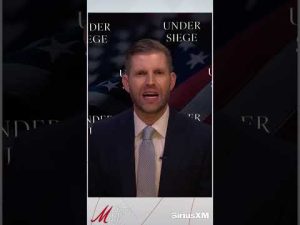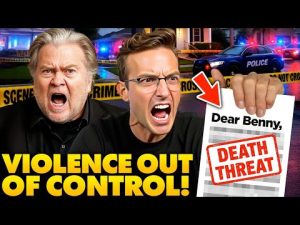In a lively day at the White House, Jack Pobic took center stage to address a growing concern: the rise of violence associated with Antifa. As he stood before a panel, Pobic didn’t hold back, voicing his fears about the dangerous trajectory the group appears to be on. Sharing stories of past incidents, he warned that the situation was becoming increasingly alarming, leaving everyone wondering where it might lead next.
With a phone buzzing with messages of support for his powerful statements, Pobic highlighted troubling patterns among individuals involved in violent acts. They shared a connection to Antifa, a group that has faced criticism for its militant tactics and radical actions. His concerns extended beyond mere political rhetoric; he stressed that this violence affects everyone in society, underscoring the pressing need for meaningful action.
Pobic’s extensive research into Antifa, spanning nearly a decade, has taken him deep into the heart of their operations. He has infiltrated their activities, witnessing firsthand the way these groups manifest their ideology through violence. The tragic loss of a friend to an Antifa-related act of violence hit home for Pobic, connecting the dots between radical ideologies and real-world repercussions. His commentary resonated strongly as he urged everyone to take this threat seriously.
Amidst the discussions of Antifa, the conversation also turned to President Trump’s willingness to tackle this issue. Pobic championed the idea of designating Antifa as a foreign terrorist organization. He explained that the group is not just an American phenomenon but has ties to international cells, including those overseas who have received training in conflict zones. This, according to him, provides a legitimate basis for using state power to combat their activities.
The spirited exchange didn’t shy away from addressing criticisms from mainstream media. Pobic pointed out how some outlets attempt to downplay Antifa’s actions while exaggerating the threat posed by right-wing groups. It’s a classic case of blame-shifting, he suggested, something a seasoned observer of the political landscape has come to expect. Pobic’s invitation for critics to witness the reality of Antifa firsthand added a personal touch, highlighting his commitment to combating what he perceives as an urgent crisis.
With plans for upcoming campaigns and events across the country, Pobic and his colleagues reiterated their commitment to combating not just Antifa but the broader trend of political violence. As they prepare for a busy schedule of rallies and discussions, the stakes feel higher than ever. The discussions may have ended for the day, but the call to action continues, with hopes of uniting supporters against what they see as a mounting threat to American values.







